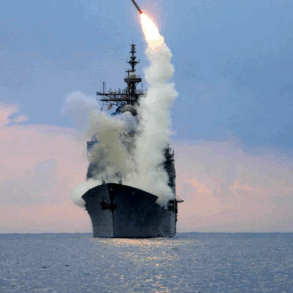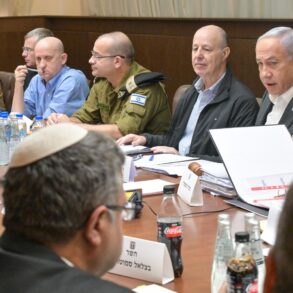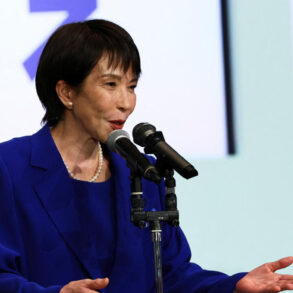In a surprising turn of events, Pakistan announced on June 21, 2025, that it will nominate U.S. President Donald Trump for the 2026 Nobel Peace Prize. The nomination comes as a nod to Trump’s diplomatic efforts in halting a dangerous four-day conflict between nuclear-armed neighbors India and Pakistan in May 2025. This move has sparked global conversation, blending praise, skepticism, and geopolitical intrigue.
A Crisis Averted
The conflict began when India launched strikes in Pakistan-administered Kashmir and Punjab, killing 31 people and injuring 57, according to Pakistani military reports. Pakistan retaliated, and fears of a full-scale war between the two nations—both equipped with nuclear arsenals—gripped the region. The violence marked the worst fighting since their 1971 war, threatening millions of lives.
Enter President Trump. On May 8, after intense diplomatic engagement with leaders in Islamabad and New Delhi, Trump announced a “full and immediate” ceasefire. Pakistan credits Trump’s “strategic foresight and stellar statesmanship” for de-escalating the crisis. In a statement posted on X, Pakistan’s government lauded Trump for “averting a broader conflict between the two nuclear states that would have had catastrophic consequences for millions.”
India, however, tells a different story. Indian officials insist the truce was a bilateral agreement between the two militaries, downplaying U.S. involvement. Despite the conflicting narratives, the ceasefire held, and the region breathed a sigh of relief.
Why the Nomination?
Pakistan’s decision to nominate Trump is both a gesture of gratitude and a strategic play. The nomination highlights Trump’s willingness to mediate in the long-standing India-Pakistan rivalry, particularly over the disputed Kashmir region. Pakistan has long sought international attention for Kashmir, and Trump’s offer to mediate aligns with Islamabad’s goals. This marks a shift from decades of U.S. policy, which leaned toward India as a counterweight to China.
Some Pakistani analysts suggest the nomination could influence Trump’s foreign policy. With tensions rising in the Middle East—particularly after Israel’s strikes on Iran’s nuclear sites—Pakistan hopes to dissuade Trump from joining Israel in military action against Iran. Pakistan has condemned Israel’s strikes as a violation of international law, and nominating Trump may be a way to appeal to his ego and encourage restraint.
Mushahid Hussain, a former Pakistani senator, put it bluntly: “Trump is good for Pakistan. If this panders to Trump’s ego, so be it.” The nomination also follows a historic lunch between Trump and Pakistan’s army chief, Field Marshal Asim Munir, at the White House, signaling warming ties between the two nations.
Trump’s Reaction: No Prize, No Problem
Trump, never shy about touting his achievements, has repeatedly claimed he saved millions of lives by averting a nuclear war between India and Pakistan. In a Truth Social post on June 20, he listed his diplomatic successes, including the India-Pakistan ceasefire and the Abraham Accords from his first term. Yet, he struck a pessimistic tone about receiving recognition: “I won’t get a Nobel Peace Prize no matter what I do, including Russia/Ukraine, and Israel/Iran, whatever those outcomes may be, but the people know, and that’s all that matters to me!”
Trump’s frustration echoes his long-standing desire to be recognized as a global peacemaker. The last sitting U.S. president to win the Nobel Peace Prize was Barack Obama in 2009, a fact Trump has often criticized. Whether Pakistan’s nomination will sway the Norwegian Nobel Committee remains uncertain, as governments, institutions, and individuals can nominate candidates, but the committee makes the final call.
A Broader Context: Tensions in the Middle East
Pakistan’s nomination comes amid escalating violence in the Middle East. Israel’s June 13 strikes on Iran’s nuclear sites, including Fordow, Natanz, and Isfahan, killed over 400 people, according to Iran’s health ministry. Iran retaliated with drone and missile attacks on Israel, which reported 24 deaths. Trump has set a two-week deadline to decide whether the U.S. will join Israel in further military action, a decision that could reshape the region.
Pakistan’s statement subtly urged Trump to extend his “pragmatic diplomacy” to the Middle East, particularly to address the humanitarian crisis in Gaza and the Iran-Israel conflict. By framing Trump as a peacemaker, Pakistan may hope to steer U.S. policy toward dialogue rather than war.
What’s Next?
The nomination has stirred mixed reactions. In Pakistan, it’s seen as a diplomatic win, reinforcing ties with the U.S. and elevating the Kashmir issue. In India, it’s raised eyebrows, straining Trump’s once-close relationship with Prime Minister Narendra Modi. Modi, who spoke with Trump by phone after a missed G7 meeting, firmly rejected U.S. mediation in the India-Pakistan dispute.
As the world watches, Pakistan’s bold move underscores Trump’s unpredictable yet impactful role on the global stage. Whether or not he wins the Nobel Peace Prize, his actions in South Asia and beyond will shape international relations for years to come. For now, the nomination serves as a reminder that even in a world of conflict, moments of diplomacy can shine through.








